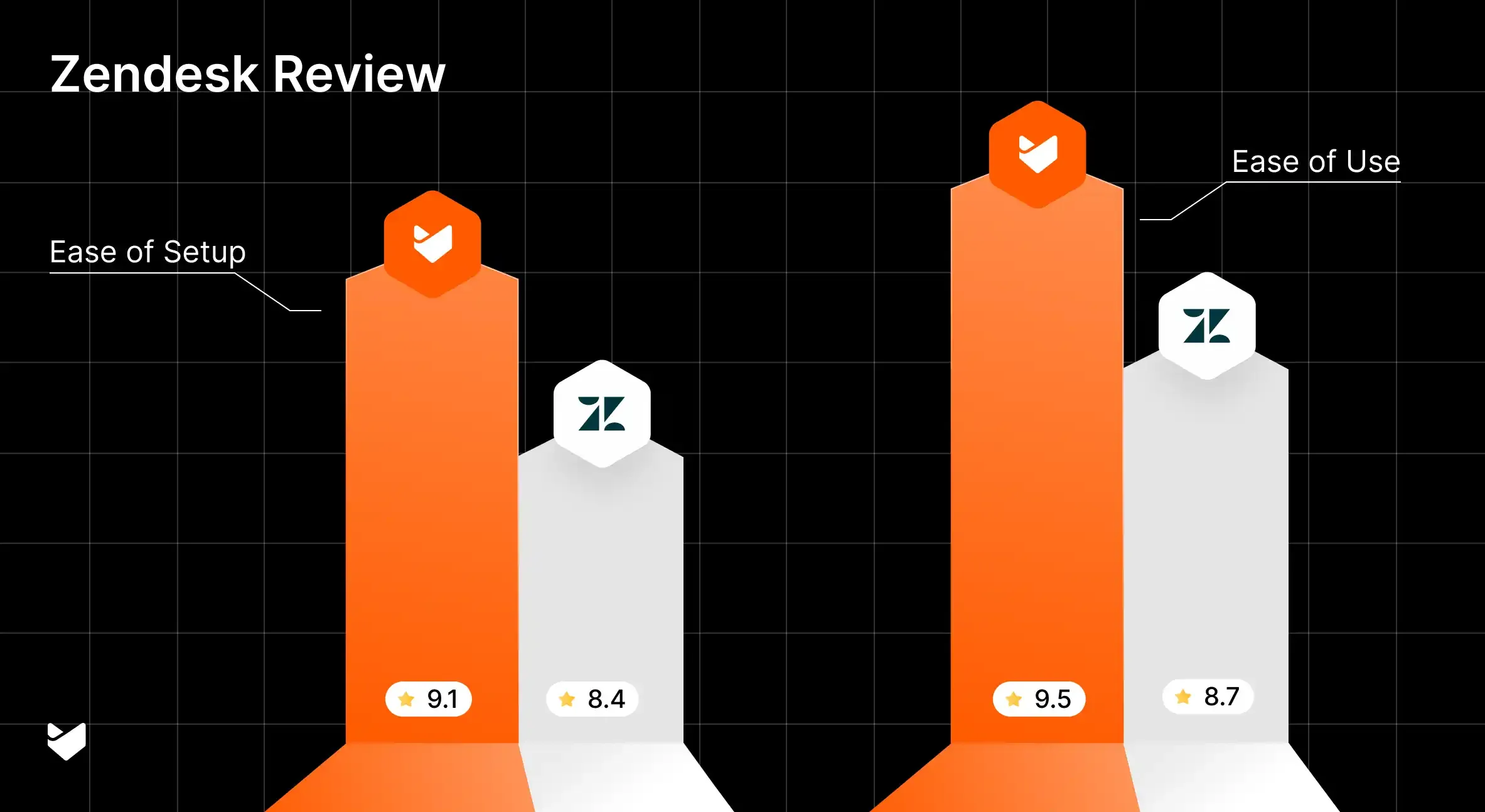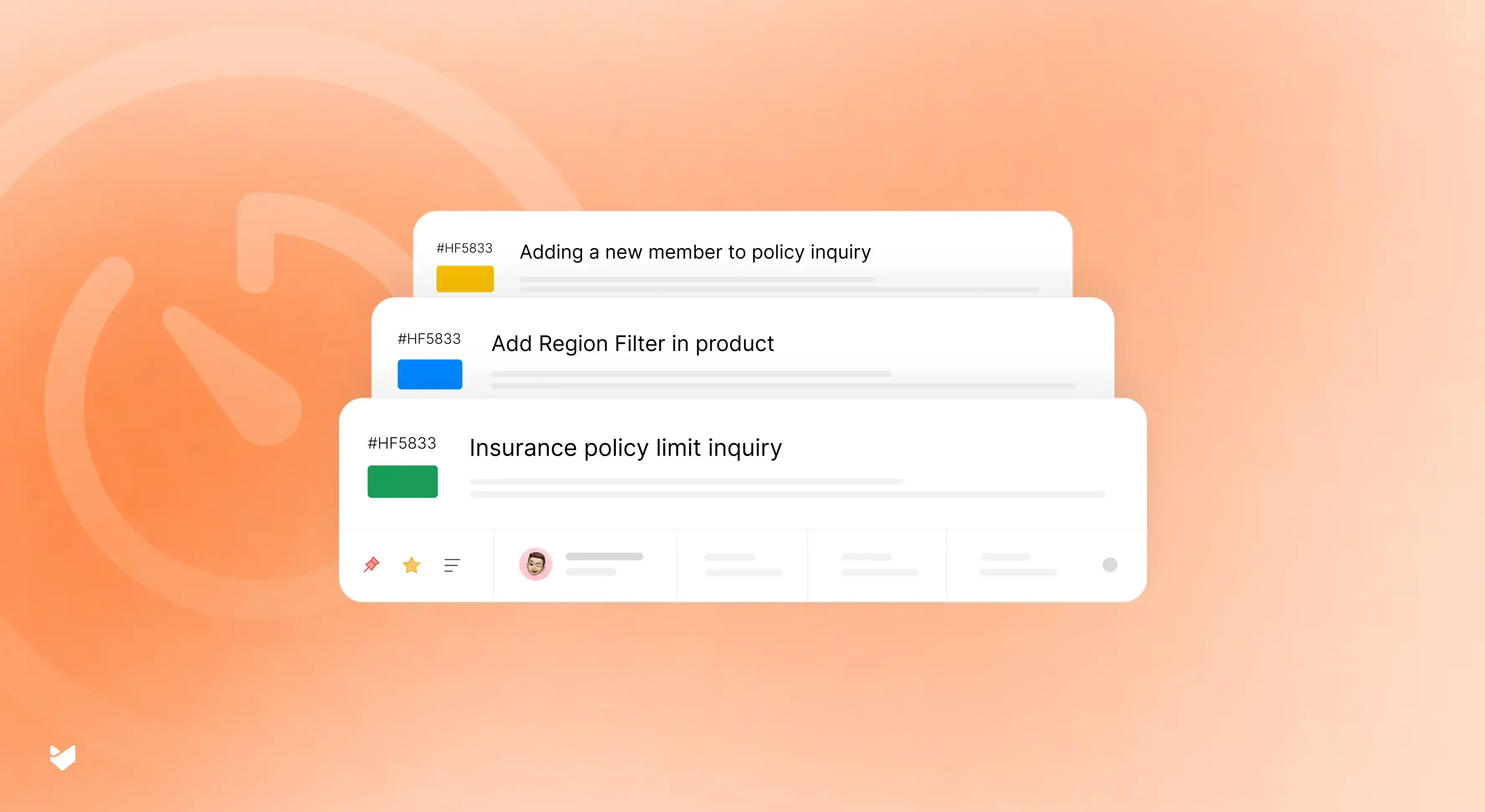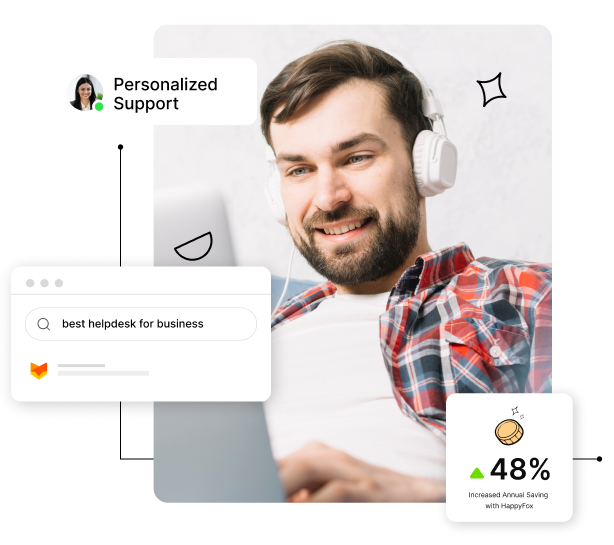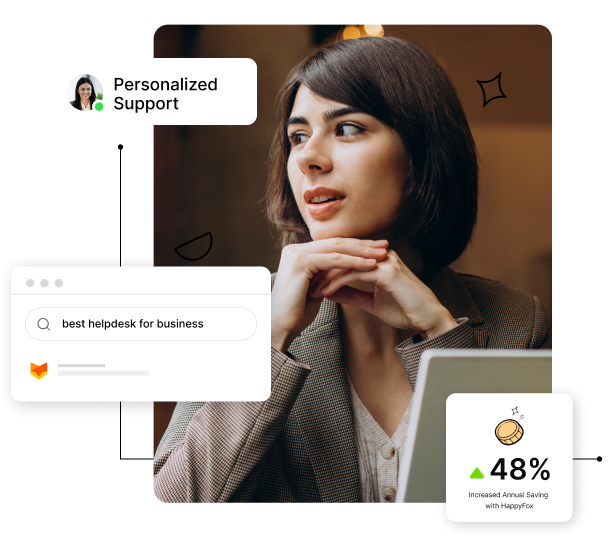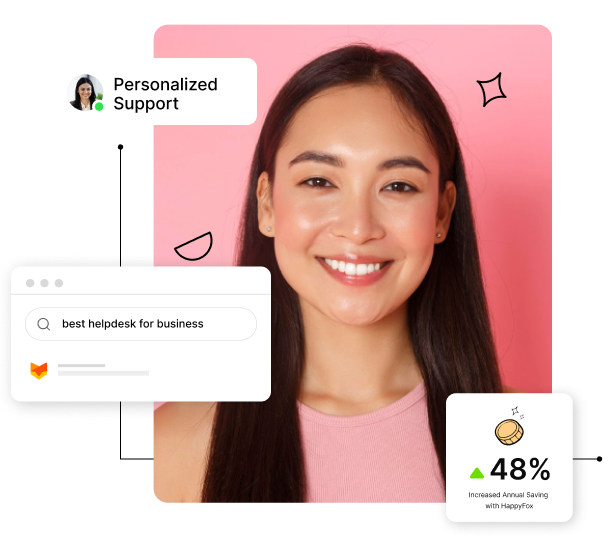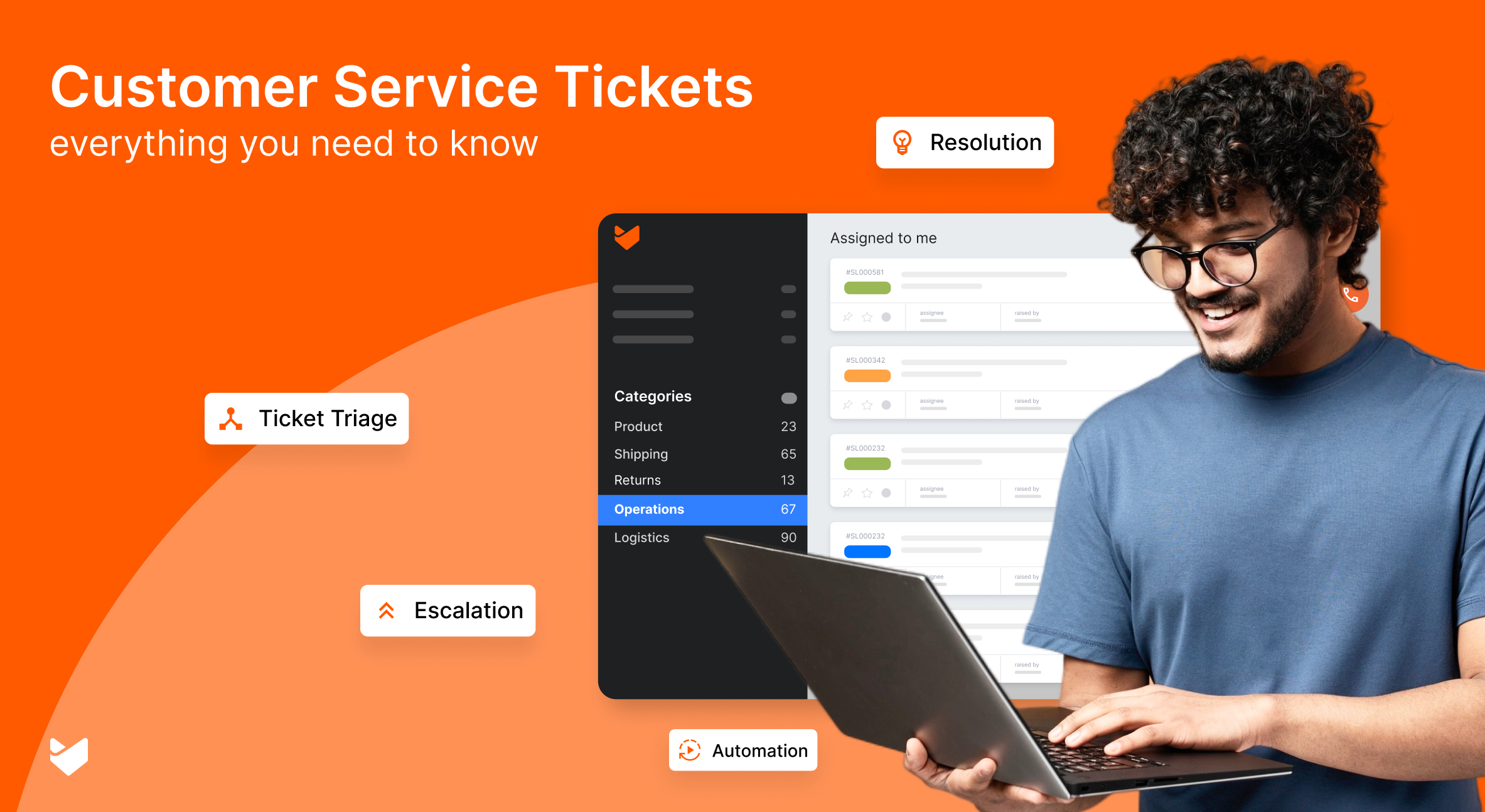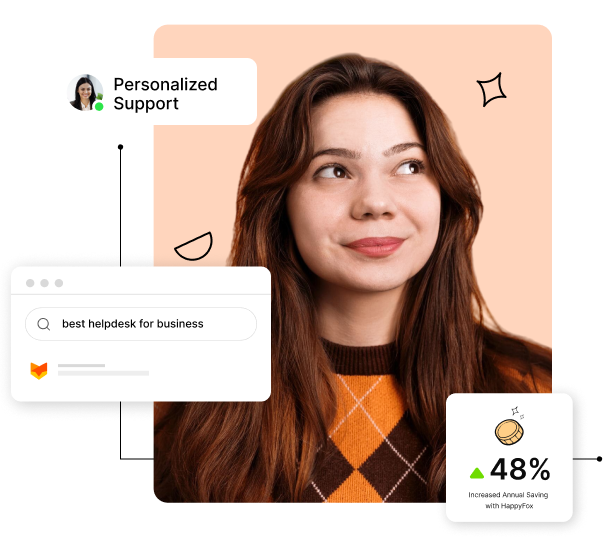11 Best Customer Service Software Solutions for 2025

Shalin
Founder & CEO HappyFox
October 21, 2025
Exceptional customer service directly impacts business success. Organizations prioritize service quality in purchasing decisions, making investing in the right customer service software essential for companies of all sizes. The best support platforms streamline operations, boost agent productivity, and increase customer satisfaction.
This guide examines the 10 most effective customer service software solutions of 2025, highlighting their strengths, limitations, and ideal use cases to help you make an informed decision.
Customer service software refers to specialized tools designed to help businesses manage, track, and resolve customer inquiries efficiently across multiple channels. These platforms typically include features like ticketing systems, knowledge bases, automation capabilities, and analytics to streamline support operations and enhance the customer experience.
Beyond organizing communications, support software provides agents with the context and tools needed for efficient service. The right platform transforms support operations from a cost center into a value-generating department.
Why Your Business Needs Customer Service Software in 2025
Before diving into specific solutions, let's examine the core benefits that quality customer service platforms provide:
- Unified Communication Management: Consolidate inquiries from email, chat, phone, and social media in one centralized workspace.
- Enhanced Efficiency: Automate routine tasks, route inquiries appropriately, and provide agents with relevant information.
- Improved Response Times: Streamline workflows to reduce wait times and resolve issues faster.
- Consistent Service Quality: Maintain standardized responses and service levels across your support team.
- Valuable Analytics: Gain insights into customer needs, agent performance, and areas for improvement.
- Scalability: Accommodate growing support volumes without proportional increases in staffing.
- Better Customer Experience: Deliver more personalized, efficient service that builds loyalty and retention.
- Cost Reduction: Lower support costs through automation and improved first-contact resolution rates.
Top 10 Support Ticket Software

HappyFox



HappyFox balances powerful features with user-friendly design, earning PC Mag's "Best Help Desk Software" award for seven consecutive years. Its intuitive interface and comprehensive functionality make it suitable for organizations of all sizes looking for a complete customer service solution. The platform seamlessly integrates comprehensive ticket management, intelligent automation, robust knowledge base, and AI-powered capabilities within an exceptionally easy-to-implement system
Serving over 2,000 organizations across 70+ countries, HappyFox stands out for its exceptional ease of implementation and minimal learning curve, allowing teams to get started quickly without extensive training or technical expertise.
Key Features
-
Omnichannel support:
Converts customer requests from multiple communication channels across email, phone, chat and social into centralized tickets for unified support management and tracking.
-
AI-powered productivity tools:
Boost team performance with artificial intelligence that automatically categorizes tickets, suggests response templates, and provides intelligent routing recommendations.
-
Flexible automation workflows:
Streamline operations with customizable automation based on time and event triggers, auto-assignment rules, and escalation protocols for repetitive processes.
-
Multi-brand support for complex organizational structures:
Centrally manage multiple brands under one platform with personalized customer portals, exclusive branding, and customized support processes for each entity.
-
Robust knowledge base:
Empower customers and agents with a comprehensive, searchable knowledge repository featuring easy-to-create articles and seamless ticket integration.
-
Comprehensive ticketing system with customizable fields:
Configure tailored data fields, statuses, and workflows to match your organization's specific case types and resolution requirements.
-
Real-time reporting and analytics:
Access detailed insights through visual dashboards covering ticket volumes, resolution times, agent performance, and customer satisfaction metrics.
Key Strengths
-
Intuitive Interface & Rapid Setup:
No steep learning curve or complex onboarding—get your support system running in under an hour with powerful features that don't require extensive training.
-
Customization Flexibility:
Adapts to any team or use case with deep customization across ticketing, support centers, workflows, automations, and reporting—going beyond one-size-fits-all solutions.
-
Comprehensive AI-Powered Support:
AI-driven productivity with instant ticket summaries, smart response suggestions, automatic resolution recommendations, priority detection, and knowledge base optimization.
-
Scalable & Transparent Pricing:
Flexible pricing that grows with your team—start small and scale effortlessly without hidden costs. Plus unlimited-agent plans with cost-saving potential for larger teams.
-
Exceptional Customer Support Culture:
Entire team, including leadership, is committed to your success—ensuring faster escalations, quicker resolutions, and direct access to decision-makers.
-
Enterprise Features Without Complexity:
Get all the functionality you need without unnecessary complexity, steep learning curves, or the overhead typically associated with enterprise solutions.
Ideal For
-
- Startups with limited resources that need quick setup, AI automation, and affordable pricing that scales.
- Growing companies that need simple, all-in-one solutions without complexity or high costs.
- Organizations with multiple teams (IT, HR, Facilities) that need unified collaboration for internal and external support.
- Large operations that need enterprise-grade security, global deployment, and deep system integrations.
User Feedback
-
Users consistently praise HappyFox for its intuitive design, reliable performance, and excellent customer support. The most frequently mentioned benefits include easy implementation, scalable architecture, and responsive customer service team.
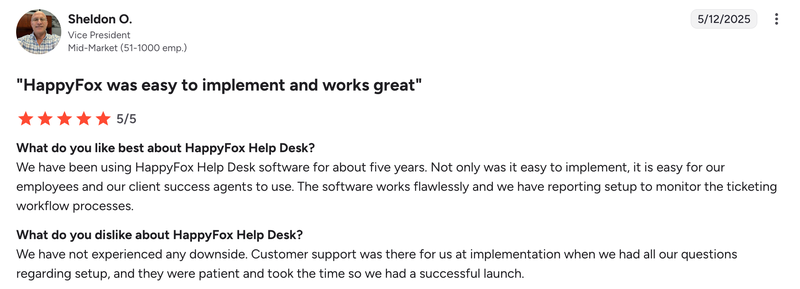
Pricing

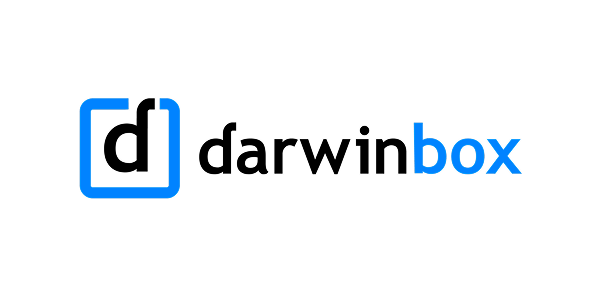
HappyFox's system uptime is superb. Despite adding many users and increasing complexity, it remains robust and scalable. We also experienced a 3X improvement in the first response time.
Avinash Mugali
Head of Customer Excellence, Darwinbox

Zendesk



Zendesk offers unmatched customization and extensibility for complex support operations. Its robust marketplace and API capabilities make it particularly suitable for large organizations with specialized customer service requirements.
Key Features
-
Comprehensive customization capabilities
-
Extensive integration ecosystem
-
Advanced workflow automation
-
Sophisticated reporting and analytics
-
Enterprise-grade security and compliance features
-
Unified agent workspace for multichannel support
-
Powerful knowledge base and community forum tools
Cons
-
Steeper learning curve than more intuitive alternatives
-
Inconsistent customer support experiences
-
Complex pricing structure that can quickly escalate
Ideal For
-
Large enterprises with complex support requirements and the technical resources to maximize Zendesk's extensive capabilities.
User Feedback
-
Larger organizations value Zendesk's flexibility and customization options, while smaller teams often report the platform can be overwhelming without dedicated technical resources.
Pricing
Recommended Reading:
15 Best Zendesk Alternatives for Exceptional Customer Support
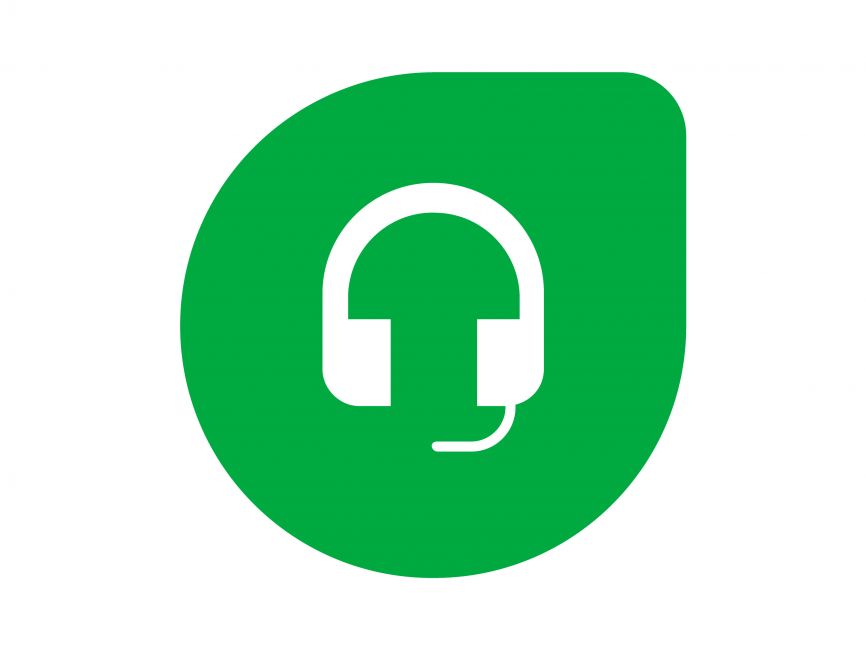
Freshdesk



Freshdesk prioritizes user experience and quick implementation, making powerful support tools accessible to businesses without extensive technical resources. Its clean interface and thoughtful design reduce the learning curve for new users.
Key Features
-
Straightforward setup and configuration
-
Clean, intuitive user interface
-
Strong mobile application for on-the-go support
-
Solid integration capabilities
-
Effective team collaboration tools
-
Automated ticket dispatch and assignment
-
Comprehensive self-service portal options
Cons
-
Occasional performance issues with larger ticket volumes
-
Limited customization depth compared to enterprise solutions
-
Analytics capabilities could be more comprehensive
Ideal For
-
Small to midsize businesses seeking an easy-to-implement customer service solution with a gentle learning curve and solid core functionality.
User Feedback
-
Companies appreciate Freshdesk's balance of functionality and usability, frequently mentioning its quick setup process and minimal training needs
Pricing
We also recommend reading:
Learn how HappyFox vs Freshdesk compare

Intercom



Intercom takes a conversation-first approach to customer service, focusing on real-time engagement through messaging. It blends support, marketing, and sales functions to create a cohesive customer communication strategy.
Key Features
-
Superior real-time support capabilities
-
Unified approach to customer messaging
-
AI-powered chatbot (Fin) with natural language processing
-
Proactive engagement tools
-
Strong integration with marketing functions
-
Comprehensive conversation routing capabilities
Cons
-
Higher cost structure for larger support teams
-
Less structured than traditional ticketing systems
-
Can require significant configuration for optimal results
Ideal For
-
Companies prioritizing real-time, conversational support experiences, particularly businesses with strong digital presence seeking to unify customer communications
User Feedback
-
Digital-first businesses appreciate Intercom's conversational support model, but many find it most effective when it's adopted company-wide across multiple teams.
Pricing
Detailed breakdown:
Intercom vs HappyFox

Hubspot Service Hub



HubSpot Service Hub provides a comprehensive customer service platform that works independently or integrates with HubSpot's broader product ecosystem. It focuses on delivering unified customer service across all touchpoints.
Key Features
-
Comprehensive ticketing system
-
Customer feedback tools
-
User-friendly interface consistent with other HubSpot tools
-
Strong automation capabilities
-
Effective customer portal
-
Comprehensive reporting dashboard
-
Ticket pipeline visualization
Cons
-
Can become expensive as you scale your support team
-
Some limitations in custom portal functionality
-
Data migration challenges for complex transitions
Ideal For
-
Organizations seeking a standalone service platform or those already using other HubSpot products who want consistent tools across departments.
User Feedback
-
Existing HubSpot users appreciate the unified customer data approach, while new adopters often find the initial setup process challenging.
Pricing
Recommended Reading:
Customer Service Tickets - A complete guide

Zoho Desk



Zoho Desk offers a context-aware issue tracking system that helps teams deliver personalized support. Its AI capabilities and customization options make it suitable for businesses of various sizes.
Key Features
-
Robust feature set with accessible pricing
-
Context-aware help desk with relevant customer information
-
Strong automation capabilities
-
Solid integration with other Zoho products
-
Effective multilingual support
-
AI assistant (Zia) for productivity enhancement
-
Customizable support center
Ideal For
-
Small to medium-sized businesses seeking comprehensive customer service functionality without premium pricing, especially those already using other Zoho tools
User Feedback
-
Cost-conscious organizations highlight Zoho Desk's value proposition, automation features, and integration with other Zoho products.
Pricing
Compare Now:
HappyFox vs Zoho Desk - Which One Stands Out?

Kustomer



Kustomer organizes support around people rather than tickets, presenting a unified customer timeline that helps agents deliver more personalized service with complete context.
Key Features
-
Customer-centric interface with timeline view
-
Strong personalization capabilities
-
Effective omnichannel experience
-
Logical organizational structure
-
AI-powered suggestions for agents
-
Comprehensive conversation history
-
Advanced search capabilities
Cons
-
Higher price point than some alternatives
-
Knowledge base functionality has limitations
-
Chatbot builder lacks visual design elements
Ideal For
-
Customer-focused organizations looking to move beyond traditional ticket-based support models toward more personalized service experiences.
User Feedback
-
Organizations focused on personalized service praise Kustomer's customer-centric approach, though smaller businesses often mention challenges justifying its premium pricing.
Pricing

Gorgias



Gorgias specializes in e-commerce customer service, providing deep integration with major platforms like Shopify, Magento, and BigCommerce for a unified view of customer orders and support interactions.
Key Features
-
Purpose-built for online retailers
-
Deep e-commerce platform integrations
-
Order management within support tickets
-
Revenue attribution for support interactions
-
Effective automation for common e-commerce scenarios
-
Order history visibility within tickets
-
Macros for quick responses to common questions
Cons
-
Limited utility outside e-commerce use cases
-
Reporting capabilities could be more comprehensive
-
Some advanced features restricted to higher pricing tiers
Ideal For
-
E-commerce businesses seeking customer service software that integrates deeply with their online store platform and understands retail-specific challenges.
User Feedback
-
Online retailers highlight Gorgias's e-commerce focus and its ability to connect support activities directly to sales outcomes.
Pricing
Need help deciding?
HappyFox vs Gorgias - Know which one’s right for you.

LiveAgent



LiveAgent prioritizes immediate customer assistance through advanced live chat functionality while still providing comprehensive ticket management features for asynchronous support
Key Features
-
Solid live chat capabilities
-
Universal inbox for all support channels
-
Video calling functionality
-
Time tracking for support activities
-
Gamification elements for agent engagement
-
Real-time visitor monitoring
-
Advanced chat routing capabilities
Ideal For
-
Organizations that emphasize real-time support channels but still need robust ticket management capabilities for complex or ongoing customer issues
User Feedback
-
Businesses focusing on real-time support appreciate LiveAgent's chat capabilities alongside its comprehensive ticketing system for more complex issues.
Pricing
Learn More:
HappyFox vs LiveAgent - Know how they compare
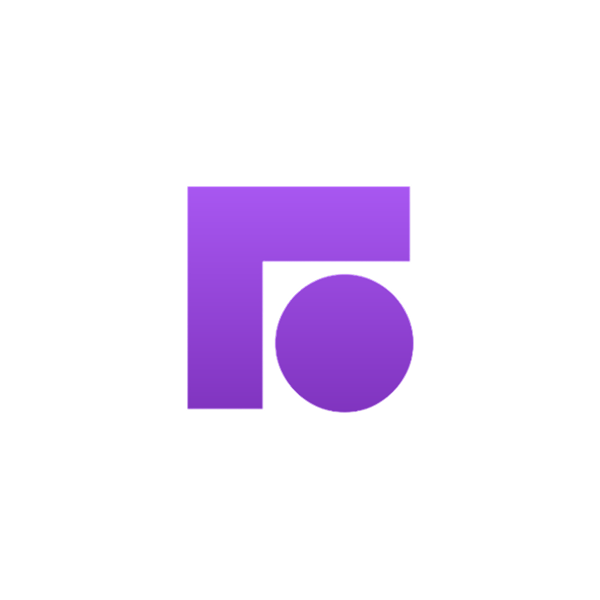
Front



Front reimagines the shared inbox by building collaborative features directly into an email-like interface, creating a familiar environment for teams while adding powerful workflow capabilities.
Key Features
-
Familiar email-like interface
-
Outstanding team collaboration features
-
Transparent pricing structure
-
Clean, intuitive design
-
Effective request assignment and tracking
-
Shared drafts functionality
-
Internal comments on conversations
Cons
-
Less structured than dedicated ticketing systems
-
Limited self-service portal functionality
-
Not ideal for highly complex support workflows
Ideal For
-
Teams looking to upgrade from basic email management without adopting a comprehensive help desk system, especially those prioritizing internal collaboration in their customer service workflow
User Feedback
-
Teams moving from standard email appreciate Front's familiar interface with added collaboration features, though some note limitations for complex support operations.
Pricing

Tidio



Tidio offers an accessible introduction to customer service software with a focus on live chat and chatbot functionality, making it particularly suitable for smaller businesses formalizing their support processes.
Key Features
-
Quick, straightforward implementation
-
Intuitive interface for agents and customers
-
Affordable Starter Plan
-
Solid chatbot capabilities for automated assistance
-
Visitor tracking functionality
-
Pre-chat surveys
Cons
-
Limited ticketing functionality compared to full help desk solutions
-
Less robust reporting than enterprise alternatives
-
Mobile application has some limitations
Best For
-
Customer-centric organizations that want to track issues within the broader context of the customer relationship.
Pricing
We also recommend reading:
Help Desk Software
Help Desk Software – Feature Evaluation Scorecard
How to Choose the Right Customer Service Software for Your Business
-
Assess Your Support Requirements:
Start by evaluating your unique support environment:- Volume: How many customer inquiries do you handle daily?
- Channels: Which communication methods (email, chat, phone, social) are most important to your customers?
- Team Size: How many support agents need access to the system?
- Complexity: Do you need advanced routing, automation, or customization?
- Industry-Specific Needs: Are there particular requirements unique to your business sector?
-
Identify Must-Have Features:
Based on your assessment, determine which capabilities are essential for your customer service team:- Multichannel Support: Do you need unified management across various communication channels?
- Knowledge Base: Is customer self-service a priority for reducing ticket volume?
- Automation: How important are workflow automation and AI assistance?
- Reporting: What analytics capabilities do you require to measure success?
- Integration: Which other business systems must connect with your support software?
- Customization: How flexible does the platform need to be to match your processes?
-
Consider Scalability:
Look beyond your current needs to ensure your chosen customer service solution can grow with your business:- Will the platform accommodate increasing ticket volumes?
- Can you easily add users and functionality as needed?
- Does the pricing structure remain reasonable as you scale?
- Is the architecture robust enough to handle your projected growth?
-
Evaluate Ease of Use:
The most feature-rich platform provides little value if your support team struggles to use it:- Is the interface intuitive for agents and administrators?
- How steep is the learning curve for new users?
- What training resources are available?
- How easily can administrators make changes to workflows?
-
Review Customer Support:
Quality customer support can significantly impact your implementation success:- What level of onboarding assistance is provided?
- Are there comprehensive documentation and training materials?
- What ongoing support options are available?
- How responsive is the vendor to issues and feature requests?
-
Test Before Committing:
Whenever possible, experience the software firsthand:- Take advantage of free trials or demos
- Involve your support team in the evaluation process
- Test the features most critical to your operations
- Ask for references from businesses similar to yours
Best Practices for Implementing Customer Support Software
Once you've selected a customer service platform, follow these guidelines for successful implementation:
-
Plan Thoroughly:
- Set clear objectives and success metrics for your customer service software
- Create a detailed implementation timeline with key milestones
- Identify potential challenges and mitigation strategies
- Establish a governance structure for the project with clear responsibilities
-
Prepare Your Data:
- Clean and organize existing customer information before migration
- Plan for data migration from previous systems with validation steps
- Establish data governance policies for ongoing maintenance
- Define data standards for consistency across the platform
-
Configure Strategically:
- Customize the system to match your workflows rather than changing processes to fit the software
- Set up automation rules thoughtfully, starting with simple use cases
- Configure user permissions appropriately based on role requirements
- Create templates and macros for common support scenarios
-
Train Your Team Effectively:
- Provide comprehensive training for all users with role-specific guidance
- Create internal documentation for specific processes and best practices
- Identify power users who can support their colleagues as internal champions
- Establish ongoing training protocols for new features and team members
-
Launch Incrementally:
- Consider a phased rollout approach to minimize disruption
- Start with a pilot team if possible to identify and resolve issues
- Gradually introduce advanced features as team proficiency increases
- Collect and act on feedback throughout the process
-
Monitor and Optimize:
- Track key performance indicators against established baselines
- Regularly review automation rules and workflows for improvement opportunities
- Update knowledge base content based on emerging customer issues
- Conduct periodic reviews of your customer service software's configuration
Frequently asked questions
What is the difference between customer service software and CRM?
While there's some overlap, customer service software focuses specifically on managing support interactions across channels, while CRM (Customer Relationship Management) systems track the entire customer relationship, including sales and marketing touchpoints. Many businesses use both systems, often with integration between them to create a complete view of customer interactions.
Can small businesses benefit from customer service software?
Absolutely. Even small teams can gain significant efficiency from proper support tools. Many platforms offer scalable pricing and feature sets appropriate for businesses of all sizes, with some providing free plans for very small teams. The productivity gains and improved customer experience often deliver clear ROI even for small organizations.
Is cloud-based or on-premise customer service software better?
Cloud-based solutions dominate the market due to their lower upfront costs, easier implementation, automatic updates, and accessibility from anywhere. However, on-premise options may be preferable for organizations with strict data security requirements or unique compliance needs. Most businesses find that cloud solutions offer the best balance of functionality, cost, and maintenance requirements.
How can I measure the ROI of customer service software?
You can track these key metrics to understand the impact of the help desk in your service operations
1. Reduction in average handling time
2. Improvement in first-contact resolution rates
3. Increase in customer satisfaction scores
4. Decrease in support costs per ticket
5. Growth in agent productivity
6. Reduction in customer churn related to support issues
Conclusion
The right customer service software can transform your support operations, enhancing efficiency and customer satisfaction. By evaluating your requirements against the available options, you can select a solution that aligns with your business needs and supports your growth.
While HappyFox, Zendesk, and Freshdesk consistently rank among the top choices for their comprehensive functionality, each platform in our guide offers unique strengths for specific situations. Consider your team's requirements, workflow preferences, and growth trajectory when making this decision.
Remember that successful implementation requires thoughtful planning, proper configuration, and effective team training. With the right approach, your customer service platform becomes a powerful competitive advantage.
























